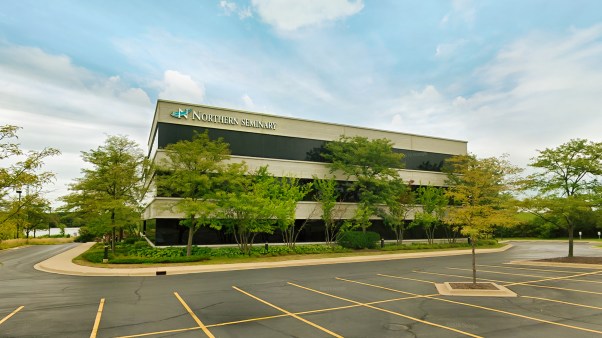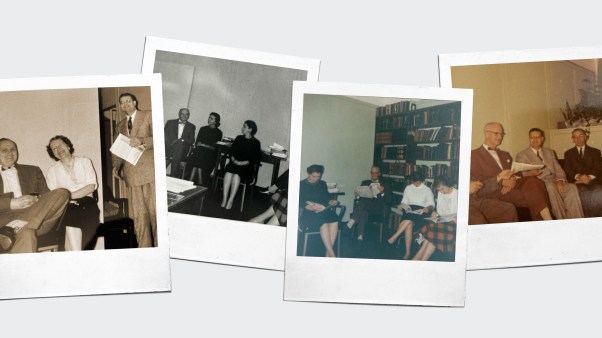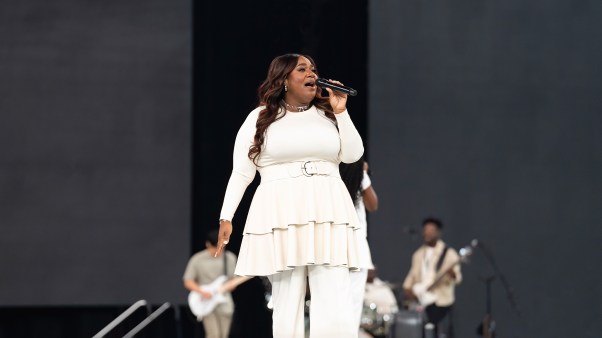Super Tuesday is upon us. After a primary here and a caucus there, Tuesday is when the greatest number of US states hold primary elections and caucuses. As the Democratic field narrows down, what type of success have candidates had in reaching out to Christians?
The AND Campaign’s Justin Giboney and Michael Wear joined digital media producer Morgan Lee and CEO and president Tim Dalrymple to discuss the efforts that the Democratic field has made to reach religious voters, why white evangelicals vote so consistently for Republicans, and if Republicans will ever court black Christians.
What is Quick to Listen? Read more
Rate Quick to Listen on Apple Podcasts
Follow the podcast on Twitter
Follow our hosts on Twitter: Morgan Lee and Tim Dalrymple
Learn more about the AND Campaign
Follow Justin Giboney and Michael Wear
Read Michael Wear’s piece: No Friend of Tax Collectors
Music by Sweeps
Quick to Listen is produced by Morgan Lee and Matt Linder
The transcript is edited by Bunmi Ishola
Highlights from Quick to Listen: Episode #202
Can you tell our listeners about the AND Campaign, so they can get an idea of where your heart is when it comes to political polarization and faith?
Justin Giboney: The AND Campaign is really trying to help Christians engage in politics more faithfully. It's a response to what we saw is really a false dichotomy in our political landscape, where it seems that we almost split the gospel.
We have social justice—progressives are about social justice, then on the other side, we have Republicans or conservatives, and they are about moral order. A lot of Christians felt uncomfortable because folks who are on the right sometimes felt like, “I feel like I'm compromising my compassion or neglecting my compassion” and Christians on the left felt like they were surrendering many of their convictions just to really be a part of more progressive politics.
And when we looked at the gospel and we looked at how Jesus walked, what we saw was we saw justice and moral order. We saw love and truth. Specifically, if you go to Ephesians 4:15, Paul is telling the church of Ephesus that we should, as mature Christians, always be able to speak the truth in love. And we didn't think that applied just to our personal relationship, we thought that applied to our public witness.
And so we wanted to get rid of this false dichotomy that says that you have to either choose truth or choose love, that you have to either choose justice or choose moral order. We felt that Christians couldn't make that decision at all. We could choose a political party, but we could not choose between love and truth, that we had to embrace both if we were going to be faithful, and then engage the process from there. And so that's what the AND Campaign’s about. We're trying to raise civic literacy among Christians, help Christians apply their values to the issues of today.
We provide a framework and that framework doesn't mean that we're going to agree on every single issue. So Christians can still disagree on several issues—we may disagree on the marginal tax rate—but in general, we should be a lot closer on some very important issues if we're using that biblical framework. And that's what the AND Campaign is to bring. So a lot of education, making sure that we're representing writing articles in mainstream media and all that so that we're representing this point of view that you just don't see too often. It's usually either all the way to the left or all the way to the right.
And then giving Christians opportunities to have on-ramps for advocacy, to really get in the game. A lot of Christians want to make a change, they just don't know where to start. They don't necessarily want to join a secular organization sometimes because they think they could pull them in a direction that they don't want to go. And so we want to provide them with that opportunity.
So we have a situation today where white evangelicals tend to vote overwhelmingly Republican, African American Christians tend to vote overwhelmingly Democrat, Hispanic Americans and Asian Americans fall somewhere in between. What’s your historical perspective on how we got to this divide of sorts?
Justin Giboney: I think it goes back to really the Civil Rights movement to some extent. When you look at President Kennedy and the things that he did in regard to civil rights, then being followed up by LBJ, I think that endeared a lot of African Americans to the Democratic Party. Also around that time, you see the Dixiecrats go over to the Republican Party. It happened a little later, but that's part of it too.
And so I think for a lot of African Americans—which I always want to point out that it's not a monolith, even when you're talking about African American Christians—I think you look back to Civil Rights, you look how the Democratic Party handled those things, and you look how Republicans have handled them and just racial injustice in general, and that kind of is what placed us on the side of the Democratic Party.
Not to say that those other issues don't matter, but in many instances, the consequences of the Civil Rights seem to be more immediate.
Michael Wear: I think that's right. I think there's obviously a story that's intertwined with all of this. With all of what Justin mentioned about the rise of the religious right, and the relationship that the religious right formed with the Republican Party in the late seventies and then especially in the eighties and nineties—that is not separate from the Civil Rights movement and the story of the sixties and seventies.
And then we have a two-party, really a coalition-based party, system. And so once these kinds of fractures happen, it becomes self-reinforcing and the parties make decisions emphasize who's already part of their party, which then makes it so that the parties are increasingly more attractive to those who are already there, and in some ways less able to do outreach.
And obviously sometimes they’re shaken up, we go through periods of realignment, but the basic facts that you laid out have been pretty consistent over the last 30, 40 years.
So you guys would say that within the last 30 or 40 years, there's not really been a time when Democrats have had an opportunity to win the white evangelical vote and that Republicans have not had the opportunity to reach the Black Christian vote?
Justin Giboney: I don't know if it's a matter of opportunity. I just think based on who their bases were, neither felt that it was worth their time to do so. They had their base, they knew how to speak to their base. They probably weren’t even interested in reaching those other demographics.
Michael Wear: So the difference between, for instance, Barack Obama's numbers among white evangelicals and Hillary Clinton's is a matter of millions of votes. Four million votes nationally, four million more evangelicals, and about 10 percentage points voted for Barack Obama in 2008 over Hillary in 2016.
Of course, with George W. Bush in 2000 and 2004, with talk of compassionate conservatism, with the faith-based office, they put in some additional effort that we haven't seen from other Republican candidates into reaching African Americans. And it's important. You know, we're talking about 10 percentage points, but it's significant, it's what can swing states.
But the basic infrastructure, the basic contours have been about the same for the last 30, 40 years. In other words, Democrats, when they are going after white evangelical votes, they're not doing so with the idea that they could win the white evangelical vote, but make the margins tighter, and the same when Republicans are reaching out to African-Americans.
What are some of the issues, like abortion or religious freedom, where the trust has eroded between these two groups?
Justin Giboney: So as you know, there are a lot of Christians who are pro-life in the Democratic Party. There's a critical mass. So when Bernie Sanders basically said to be a Democrat is to be pro-choice, that you can't be pro-life and be in the Democratic Party, I think that was just somewhat an ignorant statement. He may know better, I would hope that he knows better, but to say that was just inaccurate. But at the end of the day, when people make statements like that, it's a calculation.
So most of these folks who are putting statements like that out there, they're calculating. Am I going to get a lot of support for this or am I going to get pushback? And the Christians who are in the Democratic Party who are pro-life need to change that calculus. We probably need to speak up more and then shout it out. Folks don't make statements like that when people are vocal.
And so one of the things that the AND Campaign is trying to do is galvanized Christians on both sides to be more vocal about the issue, but then talk about the issue differently as well.
Michael Wear: There's a lot that we could talk about here. In addition to some of the specific issues, there's been this Pew Research Center question about “do you view the Democratic Party as friendly to religion?” And that is a poll that, particularly in the 21st century, Democrats have not done very well on. And so in addition to sort of policy questions, there is a tonal, a makeup and presentational, and a cultural aspect to this as well.
And then, going back to the previous question, when we talk about Democrats having a hard time reaching white evangelicals, that's also because white evangelicals have a very particular kind of makeup and profile when it comes to the issues that they care about and are concerned about. And they are different than those of many other Christians.
And it's not just abortion. On average among white evangelicals, abortion is about seventh in the list of issue priorities. Things like economics, things like on national security, typically rank higher than abortion.
So there’s just a lack of awareness of the breadth of the public there that Democrats often think they're talking about when they talk about specific issues like religious freedom or abortion. And this sort of ignorance that there’s more than just white evangelicals when they talk about these things, that they're actually talking about a pretty great swath of Christians from various racial and denominational backgrounds.
Michael, as you did evangelicalism outreach on behalf of the Obama administration and campaign, what were some of the most significant obstacles that you encountered in building support, particularly amongst white evangelicals?
Michael Wear: There are two very different jobs. So obviously, it's very clear that campaigns have one mission and it's to get elected. And so my job then was to make the best case I could for the president and get votes and earn support. In the white house, it was very different, and a lot of my work was not just with evangelicals, but with various religious communities in the country.
But when it comes to evangelicals, we actually made an intentional effort. Seeing how faith outreach had been done in previous White Houses, we made an intentional effort to go to those who are actually doing the work, those who were maybe less political but maybe they were working on international development issues or working on anti-human trafficking efforts.
And so that's what a lot of my work was—making sure that evangelicals and Christian institutions that were serving the country through the work that they did were connected with the federal government, connected with other actors in their space, and able to share best practices.
I did have a policy role and an outreach role in making sure that evangelical voices were represented, and other religious voices were represented, in policy discussions. And obviously sometimes the outcome of those policy decisions were what folks were looking for. And other times, they weren't. But we tried to make sure that folks have a seat at the table and an ability to make their case.
So all that to say, when it came to the work I was doing in the White House, the biggest hurdle was just sometimes—especially if we were working with very conservative organizations—they would have donors that would be nervous about why they were working with a Democratic administration.
That could usually be overcome. It was more about making sure our partnerships were focused on getting good work done. And when that happened, we were able to do a lot. We just tried to take politics, and especially electoral politics, off the table.
I think now we’re in an era where politics are driving religious views as opposed to religious views driving politics in 2008, 2009, and 2010 when I was serving. Now the social science really backs up the fact that a lot of the concerns of white evangelicals are driven by partisan priorities and what they see on cable news and talk radio that's supposed to be on their side.
Justin, to what extent do you feel that Democrats make an intentional effort to court the Black vote or the Black Christian vote versus taking it for granted?
Justin Giboney: They do make an effort to court the Black vote. I mean, if you watched the debates, it's clear that at least rhetorically, they've gotten the message that that's something that they need to talk about and have a deeper understanding of the issues that are going on in the Black community. So there's a value to that.
Whereas the Republican Party doesn't seem to make any effort at all, I do think that the Democratic Party takes the Black Christian vote somewhat for granted. They do attend churches, so I think they know where the votes at.
But when you look at policies, like the equality act—which almost every Democrat in the house voted for, and every candidate running for president is supporting—I look at that and say, how serious are you taking this constituency? How much do you think you can get away with before people step up and say this isn't right. It’s a policy that has no consideration for the church whatsoever. Certainly, the Democratic Party could do more, especially when it comes to policy, to show that they have these voters in mind and that they're not taking them for granted.
But then again, they probably don't feel like they have to do all that much. Because when you look at the Republican side of the aisle, you don't see them doing anything. So that gives them not a complete pass, but somewhat more room to do what they would like to do.
Would one of you be able to give a brief summary of the objectives of the equality act and then the ways that you see this being at odds with the aims of conservative Christians?
Justin Giboney: So with the equality act, basically what it does is it puts sexuality and gender identity in the civil rights act. It makes it a protected status. And so it would be on the same level as race.
Therefore, you know, a school that had a sexual ethic would be considered discriminating if they were to enforce that sexual ethic. And the same would go for maybe a hospital that doesn't want to do a certain surgery dealing with transgenderism or something like that because they don't think it's healthy, then they could be held liable.
And so really what the equality act would do to a lot of faith-based organizations is it will put them in this place where they're just really exposed to a whole lot of litigation that could very easily cause them to close their doors. It's something that every Christian should be concerned about. It's already gotten through the house, obviously not through the Senate, but it's something that has real consequences for faith-based organizations.
Are there issues that you think could encourage Black Christians to stay home or potentially vote Republican? What might cause them to not participate as fully in the party?
Justin Giboney: I do believe that if the Equality Act ends up having the impact that it could, if it has some of the consequences that it could have if it's ever passed, then you do have an issue.
But until Republicans start seriously dealing with racial injustice, taking an honest look at things like voter rights, there's not going to be much movement. I mean, why would someone go over and support another party where it's not very clear whether they want you to vote or not?
I mean, if you look at what happened in Florida where there was a very clear attempt to strip felons of the right to vote. When things like that happen, I can disagree with the Democrats all day, but if it doesn't seem like the other side wants me to participate, then there's not going to be much of a challenge there.
What would you say are the most important political priorities for Black Christians?
Justin Giboney: I spoke to the concerned Black clergy here in Atlanta and asked, “What's the main issue that makes you not even consider even working with conservatives on certain things, or even consider the Republican Party?” And the number one issue they brought up was voter rights. If somebody doesn't want you to participate in the process, then why would you consider handing over your political capital?
But I think just like everyone else, healthcare is a big deal, folks want jobs—those are kind of the focuses of the Black community in general. And that's not to say that they don't care about religious liberty, that they don't care about the right to life, but some of these other issues seem more immediate.
Rather being able to say what other people can and can't do, sometimes you're just like, I want to make sure that my community can actually participate, actually has the resources that it needs.
How realistic do you think is a concern about the loss of tax exemption status for churches? What might the consequences be if that became a serious policy position of the Democratic Party?
Justin Giboney: I think it would be seriously damaging to the Democratic Party for sure. And that's why you saw the pushback. I'm not even sure that a lot of people that in the party disagree, they were just a little more savvy than to say something that they know would have devastating impacts.
Michael Wear: First, it's not the tip of the spear. In other words, there's a significant case law around this issue that invokes constitutional questions that most folks err on the side of churches maintaining their tax-exempt status, especially if the revoking their tax-exempt status is retribution for policy views that they have. So it's really not a reasonable concern that churches will lose their tax-exempt status.
Let’s talk about the front runner right now, Bernie Sanders, and specifically a particular incident that happened a couple of years ago when he questioned one of Donald Trump's appointees about his Christian convictions around the idea that salvation only comes through Christ. What did you feel about that particular incident and what kind of understanding it seems that Sanders has about faith?
Justin Giboney: There are two conversations.
There's an internal conversation to be had that if you're going to be sitting in front of a Senate committee, maybe writing a post that folks you're going to be representing as a public servant stand condemned isn’t a good idea. Like you're going to have to explain that to people who don't understand Christian language, and if you're looking to enter into public service then that's important.
Then there's a conversation I'd have with someone like Bernie, and it's a conversation that I did have with folks associated, which is that this was one of the clearest examples of a religious test specifically outlawed in the constitution. Bernie did not ask this nominee if he thought that Muslims should be discriminated against in federal programs. He did not ask a policy question. He grilled this Trump administration appointee on his theology, which should just be off-limit.
The other piece of this, which we've talked about quite a bit in this interview, is you get the sense that Democrats feel like it's politically okay to get a few headlines, to be able to have the Freedom from Religion Foundation, send out a press release and get some kudos with the base for grilling a Trump nominee on these beliefs because they think that only Republican white conservative evangelicals believe in the exclusive claim of Christ. And it's the kind of thing that Democrats need to understand that other Christians, Christians in the Democratic Party, see this, know exactly what's going on, and understand that they're implicated in these kinds of critiques as well.
We have a piece in our March 2020 issue about how presidential contenders are wooing religious voters. With that in mind, which current candidate would you guys say has made the greatest effort to connect with religious voters and what are the types of religious voters that they have reached out to?
Justin Giboney: It's not saying much using this standard, but there is much more happening in this Democratic primary when it comes to religious voters than in 2016. And that is happening rhetorically, institutionally, and on a policy base.
Rhetorically, we're just hearing a lot more about faith in this primary. Now I've observed that a lot of the faith rhetoric is not necessarily about the value that faith brings to the public square, about the importance of religious institutions, as it has been in previous cycles, but a lot of the faith rhetoric in the Democratic primary this time around is personal, citing of scripture to support a certain policy views and initiatives.
I think that the clear sort of leader in terms of the quantity and how much he's talking about faith Pete Buttigieg, who has just been talking about faith. Elizabeth Warren is someone who talks about faith quite a bit. Corey Booker is not in the race anymore, but he's someone with a history of faith rhetoric. And so we've just seen a lot more of that than we have in the past.
Institutionally, you have campaigns that are already staffed up when it comes to faith outreach that again, we didn't have at this time in 2016. So Pete Buttigieg has a national faith outreach person, the Biden campaign has several faith outreach staffers and then staffers in senior positions that have done faith outreach in the past. Elizabeth Warren, Andrew Yang, who's now dropped out, they also have faith outreach folks. And so institutionally we're seeing play a more significant role.
What about Michael Bloomberg?
Michael Wear: He has a lot of money to spend. He's already spent about 400-500 million of it from reports I've seen. He has two faith outreach staffers, one of whom is Adam Phillips, who is someone who spent quite a significant deal of his time doing evangelical outreach and including a stint with the ONE Campaign.
Bloomberg’s been meeting with clergy, including a clergy meeting with a pretty diverse group of Black clergy, to discuss his stop and frisk policies and to ask for support in his campaign.
Bloomberg is a late entry. He's only been in the race for about 10-12 weeks. But he's staffed up and is doing the kinds of church visits that the other candidates are doing.
Justin Giboney: I was recently at a community event and a lot of the guys that usually do work for me on my campaigns—whether it's doing field stuff, going to churches on Sundays, and doing the flyers and all that stuff—almost all of them were working for Bloomberg.
It was really surprising to me. I mean, we're talking about guys who are sometimes rivals, right? But he's paying so much more. They thought it was the way to go for them. And so, he's definitely making some moves on the ground, touching some grassroots people and getting them on the team.
If you were advising the Democratic candidate, how would you encourage him or her to build inroads with white Christians? And then, if you were advising the GOP candidate, how would you encourage him to build inroads with the African American church, as well as other minority communities that may be skeptical?
Justin Giboney: For a Democratic president, I would probably say you're going to have to get control of the party and moderate on things like abortion. Be more responsible and be more sensible when it comes to religious liberty. Have a conversation about it. Understand what pluralism really is. I said it before, but sometimes on the left, it seems like pluralism is just different flavors of progressivism, but that's not really what it should be.
To a Republican president, I would say build relationships. There's nothing better than actually showing that you care. Building relationships and having conversations to find out what the people in a certain community you really want and really need. I think sometimes we kind of get away with photo ops and all that stuff, but there's nothing bigger than building a relationship and being present. That's a good place to start.
Michael Wear: So just last week in partnership with the Trinity Forum and with the support of the Democracy Fund, Amy Black, who's renowned and much-loved professor at Wheaton College, and I co-authored a report with the title “Christianity Pluralism and Public Life in the United States: Insights from Christian Leaders.” It's a report that is based on in-depth interviews with more than 50 Christian leaders around the country.
One of the main ways it's relevant here, and I think it's relevant to both your questions, is it lays out a case for the positive role and the positive contributions that Christianity has to offer in a pluralistic America—both America's pluralistic present and its pluralistic future. That's something that we could use more of in our politics now.
Candidates and elected leaders who are willing and able to invite people into their vision and to say that you can be who you are, you can thrive and flourish in an America where I'm serving as president or where I'm an elected leader. And these are the areas where I think we could work together, this is where I need you, this is where you could serve. I think that the invitation, that idea that you have a place in the American family, and that you're a treasured part of America is something that I think folks on both sides of the aisle feel like the other political party doesn't have.
We're not just in a political moment where you think the other party has some policy disagreements with you. You think that the other party wants you dead. Sometimes literally. You think the other party doesn't want you to be a part of America, to have a role in this country.
If there's a community that you can't go into with your basic message, that's a good sign that you probably aren't worthy of the elected office you're seeking. And so whoever the Democratic nominee is, they better be able to give a positive message and sincerely ask for the votes of white evangelicals. We have a track record with President Trump, but any Republican ought to be able to give a sincere message to Black Christians as well.









